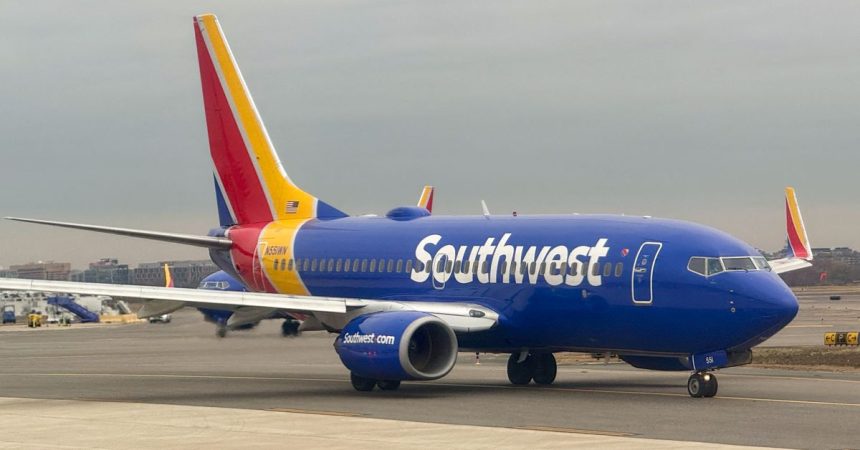The US Department of Transportation (USDOT) has initiated legal action against Southwest Airlines, alleging the airline illegally operated multiple chronically delayed flights, causing significant disruptions to passengers’ travel plans. The lawsuit stems from an investigation into two specific routes operated by Southwest between April and August 2022: one connecting Chicago Midway International Airport and Oakland, California, and the other linking Baltimore, Maryland, and Cleveland, Ohio. The USDOT asserts that these flights were chronically delayed for five consecutive months, resulting in 180 disruptions for passengers. A flight is classified as chronically delayed if it operates at least ten times per month and arrives more than 30 minutes late over half the time.
Southwest Airlines has expressed disappointment with the USDOT’s decision to pursue legal action, emphasizing the isolated nature of the two flights in question within the context of their overall operational history. The airline maintains that since the USDOT implemented its Chronically Delayed Flight (CDF) policy in 2009, they have operated over 20 million flights without any other CDF violations. They argue that characterizing these two instances as representative of unrealistic scheduling is not credible, citing their impressive 2024 performance, where they led the industry in completion rates with over 99% of flights operating without cancellations. Southwest contends that these two isolated incidents should not overshadow their consistent adherence to scheduling standards over the past 15 years.
Concurrently, the USDOT is also taking enforcement action against Frontier Airlines for similar issues related to chronically delayed flights. Frontier has been assessed a civil penalty of $650,000, with half of the amount payable to the US Treasury and the remaining $325,000 suspended, contingent upon the airline avoiding any further chronically delayed flights over the next three years. This penalty underscores the USDOT’s commitment to holding airlines accountable for maintaining acceptable on-time performance and minimizing disruptions for passengers.
These actions against Southwest and Frontier follow a pattern of similar enforcement measures taken by the USDOT against other airlines. Earlier this month, JetBlue was subjected to a $2 million penalty for operating chronically delayed flights, demonstrating the department’s ongoing efforts to address this persistent issue within the airline industry. Furthermore, Southwest Airlines faced penalties in 2023 related to a major holiday travel meltdown in 2022 that left millions of passengers stranded, further highlighting the scrutiny airlines face regarding their operational reliability. The USDOT’s consistent approach to enforcement emphasizes its focus on consumer protection and maintaining a reliable air travel system.
The USDOT’s pursuit of legal action against Southwest Airlines for two specific chronically delayed flights, alongside the financial penalties imposed on Frontier Airlines and JetBlue, signals a broader effort to address persistent on-time performance issues within the airline industry. This rigorous enforcement strategy aims to hold airlines accountable for maintaining realistic schedules and minimizing disruptions to passenger travel. While Southwest maintains that the two flights in question are outliers within their operational history, the USDOT’s actions underscore the importance of consistent adherence to scheduling standards and the potential consequences of chronic delays.
The recurring theme of chronically delayed flights highlights the challenges faced by airlines in balancing operational efficiency with passenger expectations. Factors such as air traffic congestion, weather conditions, and maintenance issues can contribute to delays, making it difficult for airlines to consistently meet on-time performance targets. The USDOT’s enforcement actions, however, underscore the expectation that airlines must implement effective strategies to mitigate these challenges and ensure that passengers are not subjected to excessive or recurring delays. The financial penalties and legal actions serve as a deterrent, encouraging airlines to prioritize on-time performance and invest in the resources necessary to maintain reliable operations.



